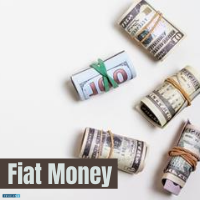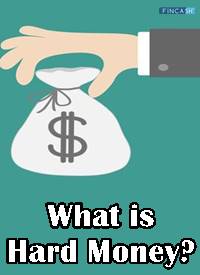
What is Good Faith Money?
Good faith money is a deposit given by a buyer to a seller that reflects the buyer's good faith and willingness to complete the transaction. The money allows the buyer to purchase additional time before finalising the sale to arrange for finance and do the necessary searches for names, property valuations, and inspections. It's usually added to the purchase afterwards, but it's not refundable if the sale falls through.

The sum is generally 1% - 2% of the sale price or a set amount. It's also known as Earnest Money, binder money, or token money. It effectively verifies a contract, and when the earnest money is paid, both contracting parties are bound to follow out the verbal agreement.
How Does it Work?
Good faith money isn't usually paid to the seller directly. A third-party broker creates an escrow account to aid in the correct transfer of funds at the conclusion of the transaction. When the seller accepts the offer, the buyer must sign a "purchase agreement."
The agreement specifies the procedure for delivering the earnest money to the seller, as well as the fact that both parties have entered into a legally binding agreement on a certain topic. The buyer must submit an earnest money deposit to the Real Estate agent's escrow account as soon as the contract is signed.
The money is given to the seller as part of the purchase price if all of the buy and selling criteria are satisfied. However, if the buyer is unable to get funds for the purchase or decides not to proceed with the transaction, he is entitled to a refund, as long as it is specified in the contract.
Good Faith Money Vs. Down Payment
| Basis | Good Faith Money | Down Payment |
|---|---|---|
| Meaning | Any deposit made by a buyer into an account to demonstrate his or her commitment to completing a transaction is known as good faith money | The downpayment is the amount of money paid to a seller in advance when purchasing a property. It is generally paid after a contractual agreement is signed and the transaction is on its way to completion |
| Deal secure | This amount helps to make your offer stand out to sellers and secure your deal to start the actual process of buying | It finalises the deals and ensures your deal is good to complete |
| Contract | Not required, the verbal agreement works | Required, if taking mortgage loan or any sort of loans |
| Money usage | It goes towards the down payment and closing costs | It goes towards the final purchase of property |
| Third-party | Involved | Not involved |
| Pay Range | It’s typically 1%-3% of the total amount paid to the seller | It ranges from 5% -25% of the total cost of the investment |
In a nutshell, a downpayment is a promise to the lender, whereas an earnest money deposit is a commitment to the seller of the property.
Talk to our investment specialist
Good Faith Money in Tender
In the case of a tender, the sum is disclosed well in advance before the tender's start. For a printing job, for example, Company XYZ may need a good faith money deposit from the bidder. The amount would be determined by the firm, and in many situations, if the contract is significant, the deposit might be substantial.
In the event that a tender is not awarded, the firm that collected the money must reimburse it. In India, there is usually no interest charged on good faith money deposits.
All efforts have been made to ensure the information provided here is accurate. However, no guarantees are made regarding correctness of data. Please verify with scheme information document before making any investment.












